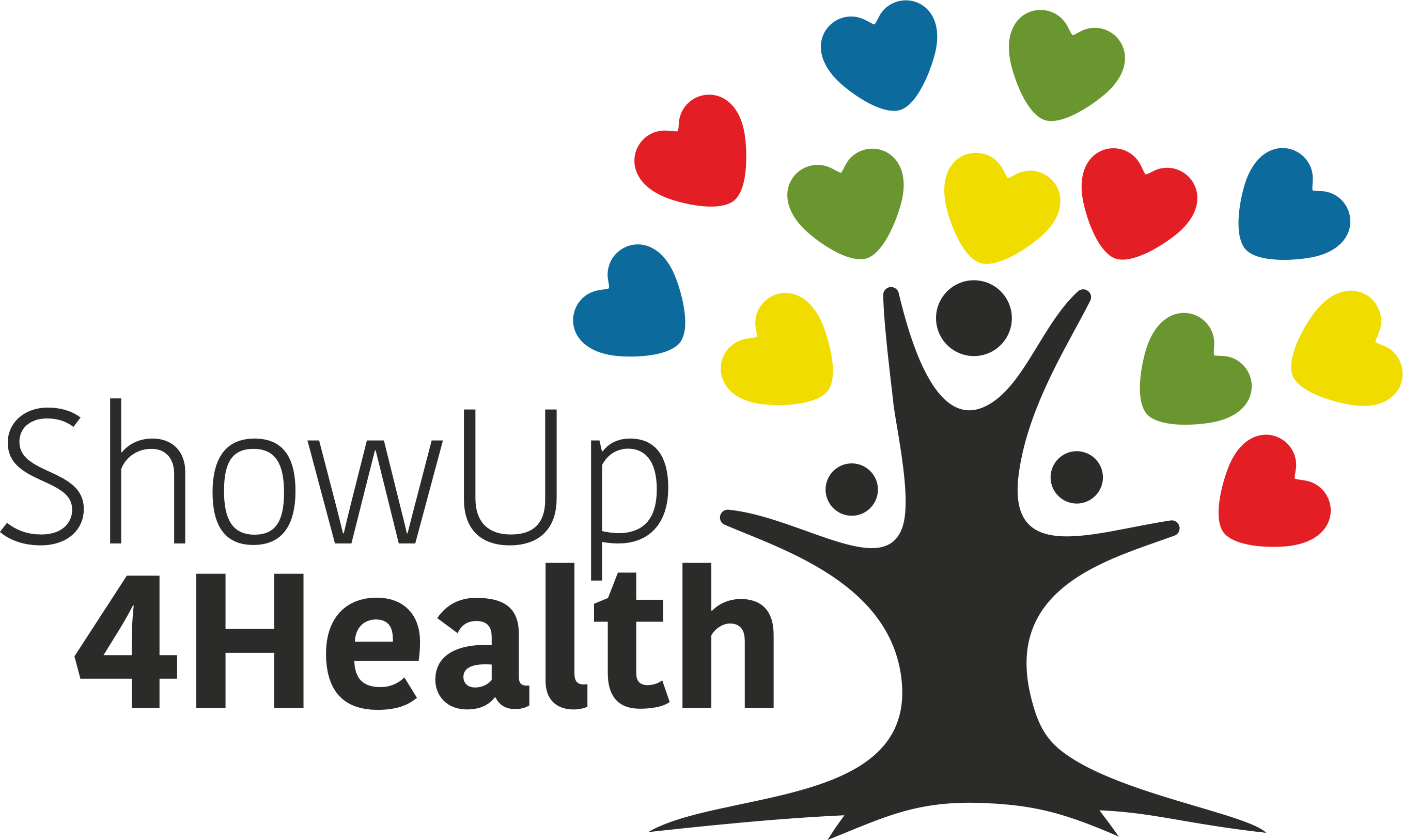Articles and Publications
Halftime Pilot Evaluation Workshop – Narrative Summary
The Halftime Pilot Evaluation Workshop took place in Micfalău from 8–10 September 2025 within the framework of the ShowUp4Health project. Its purpose was to review the progress made halfway through the programme, to evaluate the first results of the pilots, and to define the directions for the next phase. Each partner (FMC, HCSOM, HESED, SAMR, CHD MS and the associated partner SE) was represented at the in-person event.
The event was formally opened with welcoming remarks in which the organisers emphasised the importance of improving access to health and social services for vulnerable groups, particularly Roma communities and internally displaced persons (IDPs). The opening speeches highlighted that the real strength of the partnership lies in mutual learning and the exchange of experience, which form the basis for sustainable and scalable solutions.
The first day was devoted to evaluation. Under Work Package 1 the functioning of the APC process and the overall collaboration within the consortium were reviewed. As part of Work Package 3, the Hungarian Maltese Charity Service presented its integrated programme for segregated settlements. This presentation was directly linked to Deliverable D3.5, since the work showcased during the workshop laid the foundation for the development of the WP3 strategy and toolkit. The presentation began by describing the different types of segregated areas and went on to illustrate a range of local models developed in Tarnabod, Monor, Pécs, Táska, Gyulaj and Veszprém. These interventions combine housing, employment, education and community development to support the long-term integration of disadvantaged groups. In the afternoon, Work Package 2 hosted a methodology workshop where partners worked together in an interactive session to define the desired structure and content of the methodology chapter. The joint work resulted in a set of expectations for a methodology that is simple, clear, practical, sustainable and easily adaptable, guiding the reader step by step from situation analysis and problem definition through target group involvement to the measurement of results. The day concluded with the evaluation of Work Package 5, where the framework for monitoring and evaluation was presented. Discussions underlined the necessity of establishing unified indicators and KPIs in order to make pilots comparable and transferable in later phases.
The second day focused on co-design and sharing experiences. During the plenary session, each partner presented the difficulties encountered in their own pilots, explained which stakeholders they worked with, and gave advice to one another. This was followed by pilot presentations which demonstrated tangible results. In Slovenia, ten health mediators had been identified to work with Roma communities, supporting participation in national NCD screening programmes; a communication campaign and adapted promotional materials were also prepared. In Bulgaria, the HESED pilot had trained seventy-two professionals, collected over two hundred and thirty questionnaires through digital tools, participated in Sofia’s anti-hypertension campaign by supporting fifty-six people to attend cardiology consultations, and launched screenings in four Roma communities. In Romania, the SAMR pilot trained mediators and carried out its first screening in Örkő with ninety-eight participants, which included blood pressure, BMI and glucose measurements as well as ophthalmological and orthopaedic checks. Despite operating in wartime conditions, the Ukrainian InterFamily pilot provided care for over three thousand patients, introduced the “Check Me” digital screening platform, and offered tailored support for elderly IDP patients.
At the end of the day, participants visited Miercurea Ciuc to see the SAMR social programmes. The field visit included a Roma settlement and the community centre built nearby, where the local team presented their social and educational activities. This on-site experience confirmed that community presence, combined with integrated social and health services, is essential for successful integration.
The third day was dedicated to stakeholders. Representatives of municipalities, government agencies and health institutions shared their perspectives, particularly on the opportunities and challenges of integrated social and healthcare provision. A highlight of the day was the presentation of the results of children’s ophthalmological screenings. Over the past three years, more than 2,600 children were examined, and 688 of them were re-tested. The findings showed that hyperopia is dominant in this age group, while undetected sight problems have a direct impact on learning performance and school success. The key message of the session was that early screening – at the ages of one, three and six – is crucial to ensure future quality of life and equal opportunities in education.
In closing, the coordinator summarised the progress made and stressed that the true value of the project lies not only in the tangible results of the pilots but also in the collaboration and shared learning among partners. Although financial constraints, staff overload and the challenge of increasing community participation remain, the three-day workshop clearly demonstrated that the work carried out within the framework of ShowUp4Health has the potential to deliver long-term and sustainable impact for the communities involved.
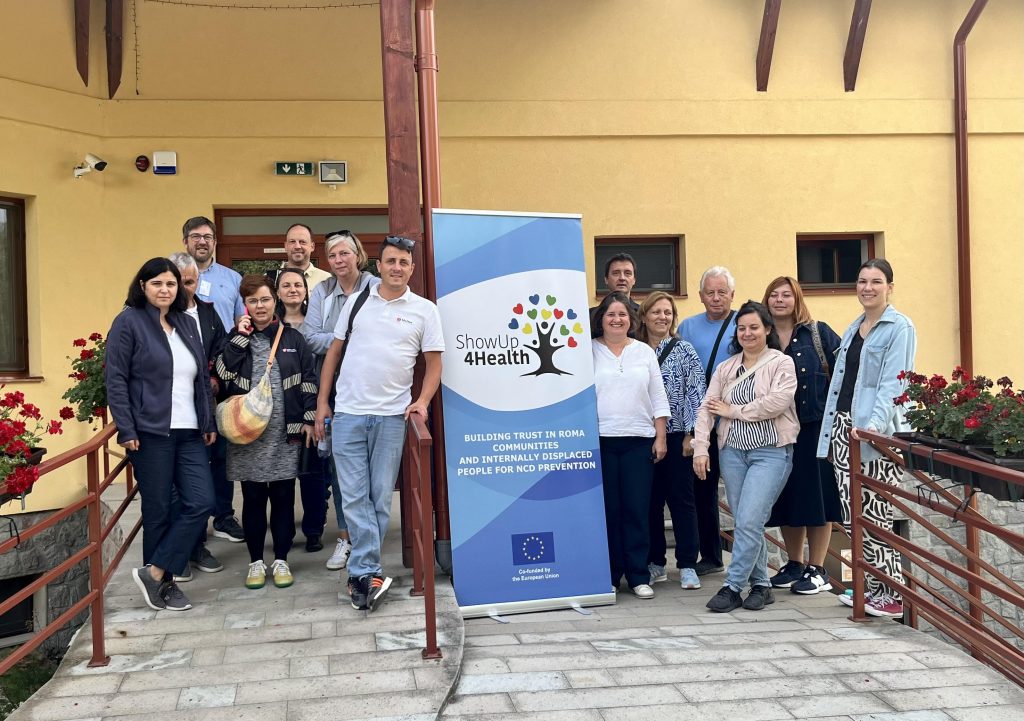
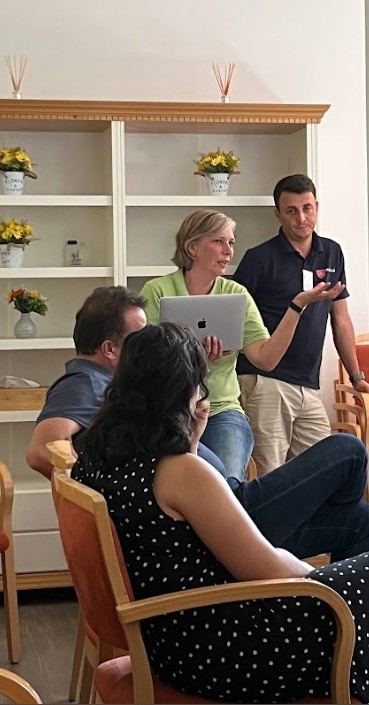
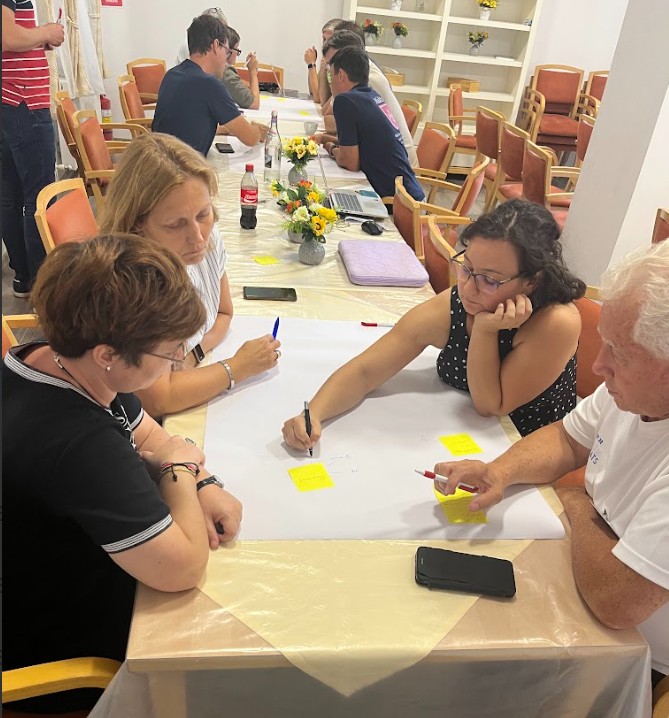
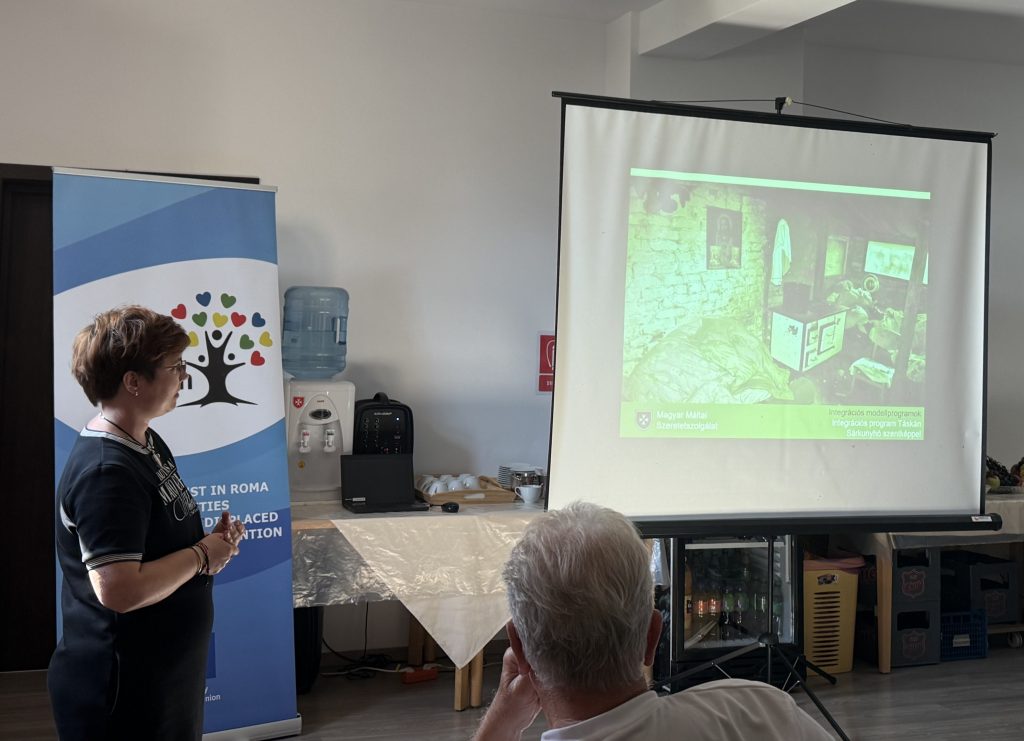
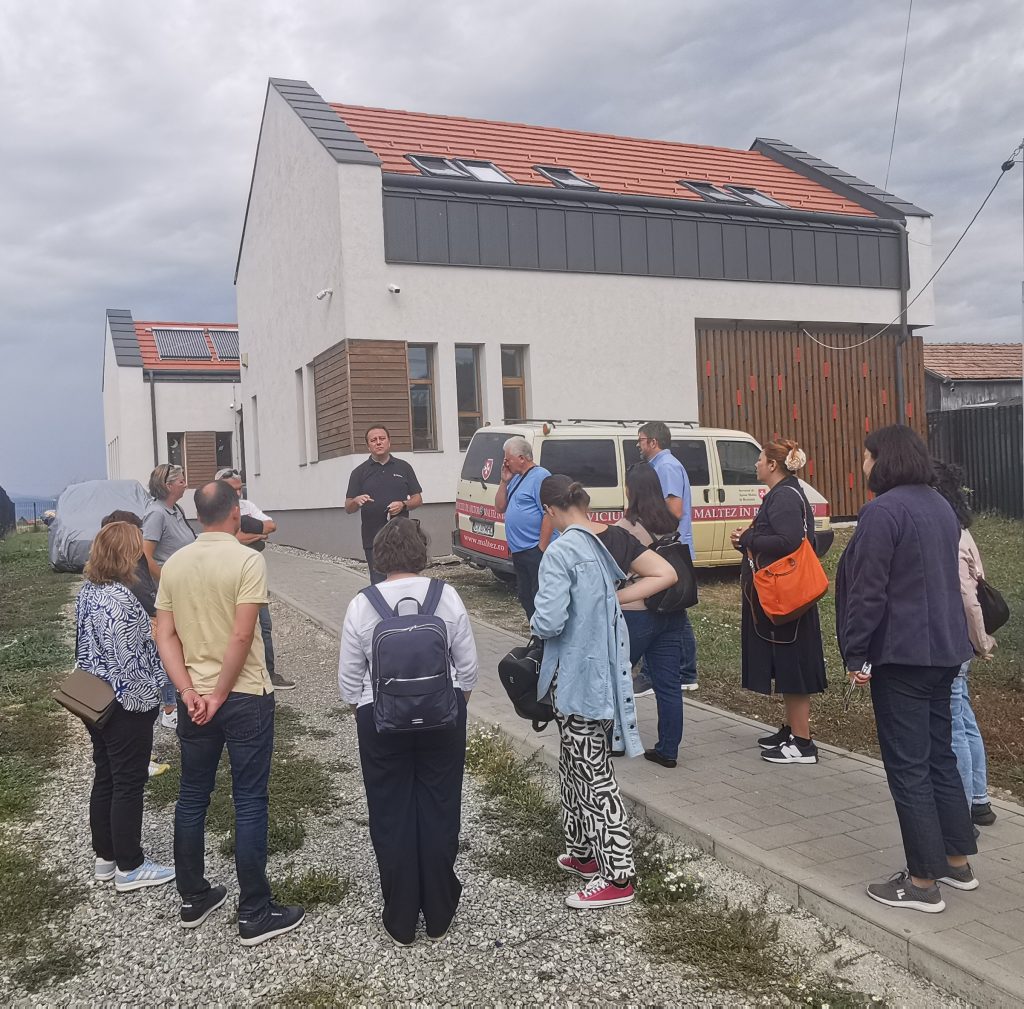
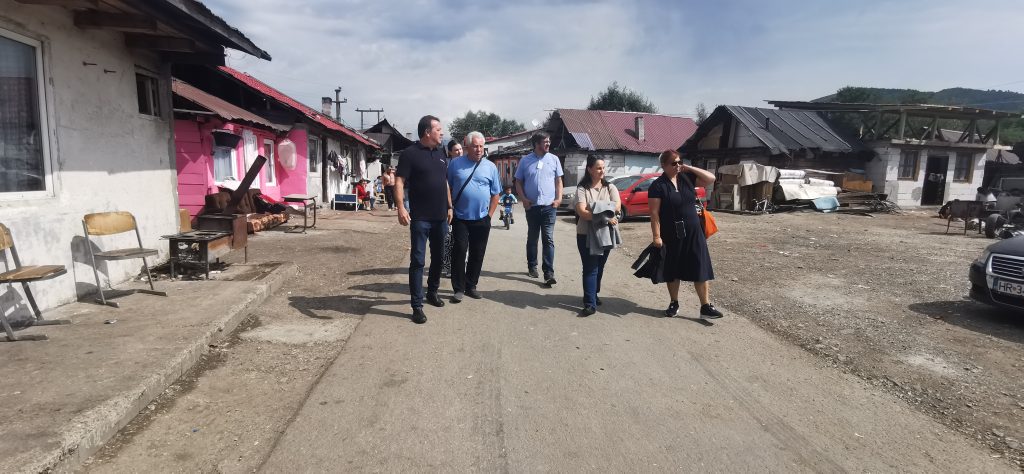
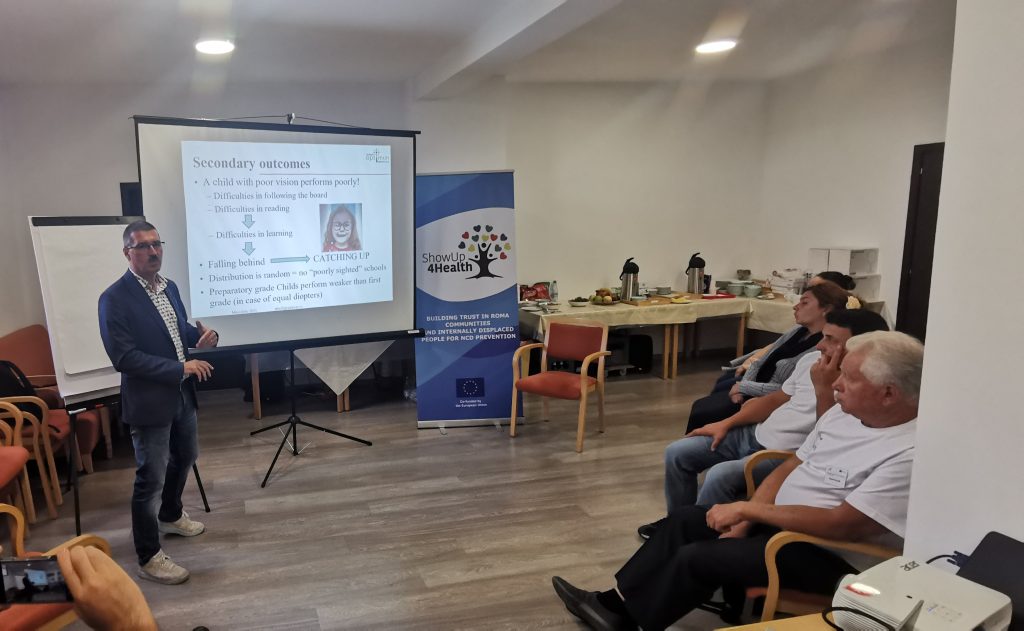
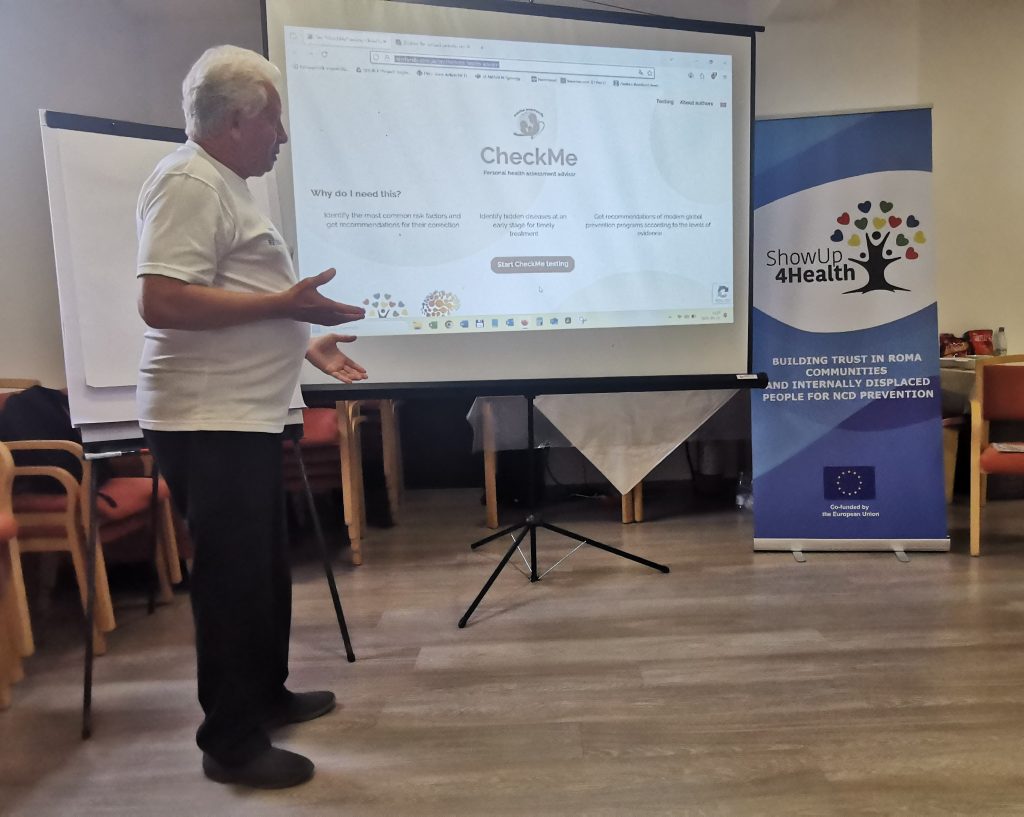
5 X 8 EVERY DAY – HESED AND THE SHOWUP4HEALTH PROJECT
Within the ShowUp4Health project, our Bulgarian partner HESED has taken an important step in
promoting health awareness and prevention among vulnerable communities. Thanks to their
work, a methodology for the prevention of non-communicable diseases has been developed,
which has become a central theme for outreach workers.
In Sofia, Samokov and Kyustendil, HESED organized the regular annual meeting with
professionals and field workers, focusing on healthy lifestyles, the early detection of health
problems, and timely intervention. More than 70 participants attended the session titled “5 x 8
Every Day”, presented by Dr. Elena Kabakchieva. The key messages included:
- The 8 most important rules for healthy nutrition:
- the secret is in the balanced plate; quality instead of quantity;
- sugar kills us;
- salt is vital, but should be limited;
- “One who doesn’t eat vegetables – Will not grow big”;
- fruits should be berries;
- more fish and proteins;
- good fats are not our enemy:)
- 8000 steps for tone and strength3. 8 glasses of water for hydration and vitality
- 8 hours of sleep for recovery and concentration
- 8 hugs for immunity and good mood
The event also included a practical workshop, where participants measured each other’s blood
pressure, corrected their technique, and practiced accurate measurements to be used later in
their outreach work.
At the end of the meeting, each group received an assignment: to design a plan for improving their
healthy habits at home and in their workplace. The goal is to present the results at the next annual
meeting, showing how the ShowUp4Health approach can be put into practice.
Original article: https://hesed.bg/en/news/5-by-8-every-day-showup4health/
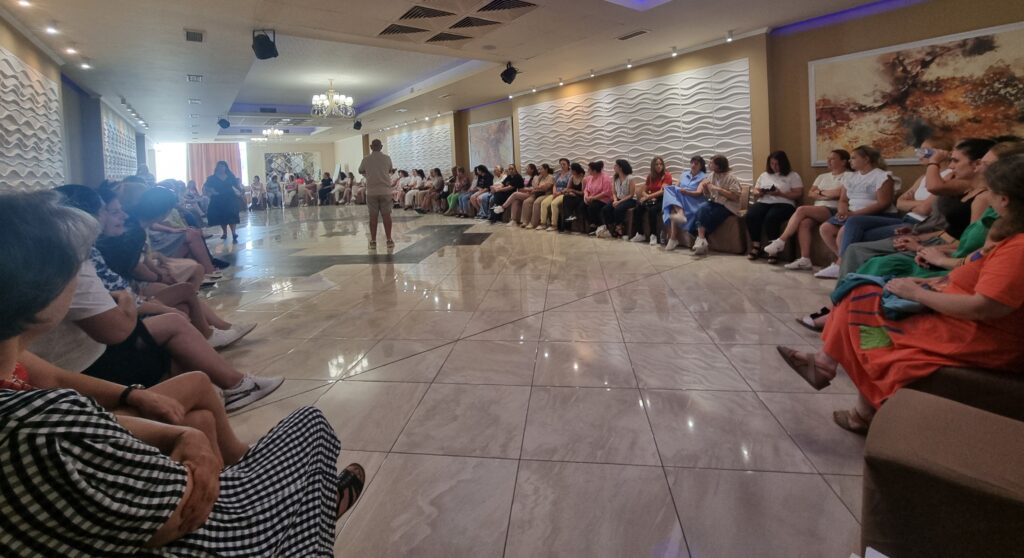
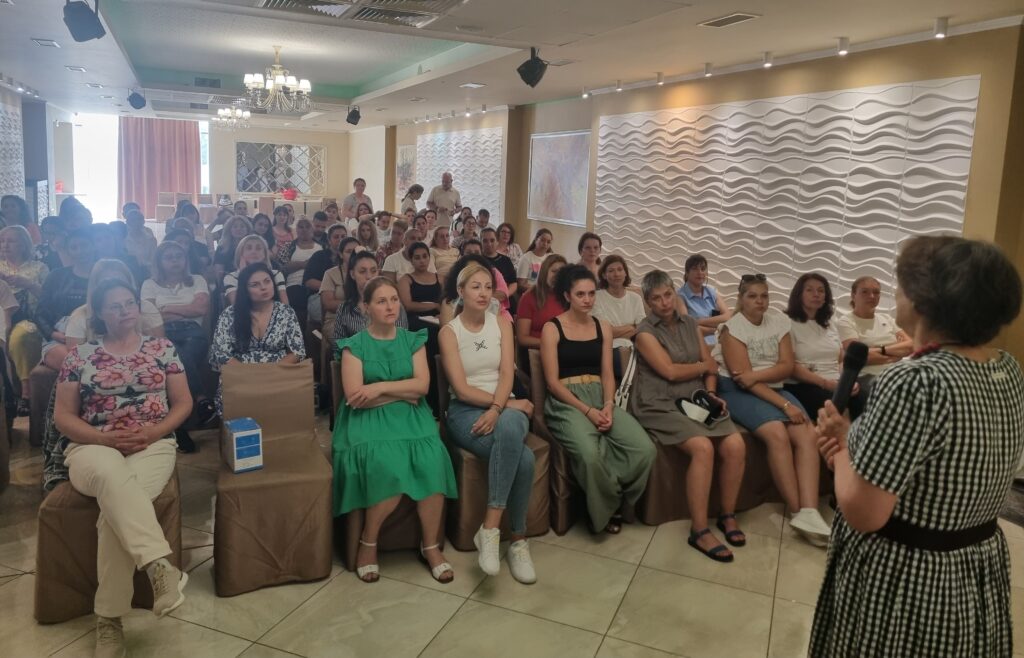
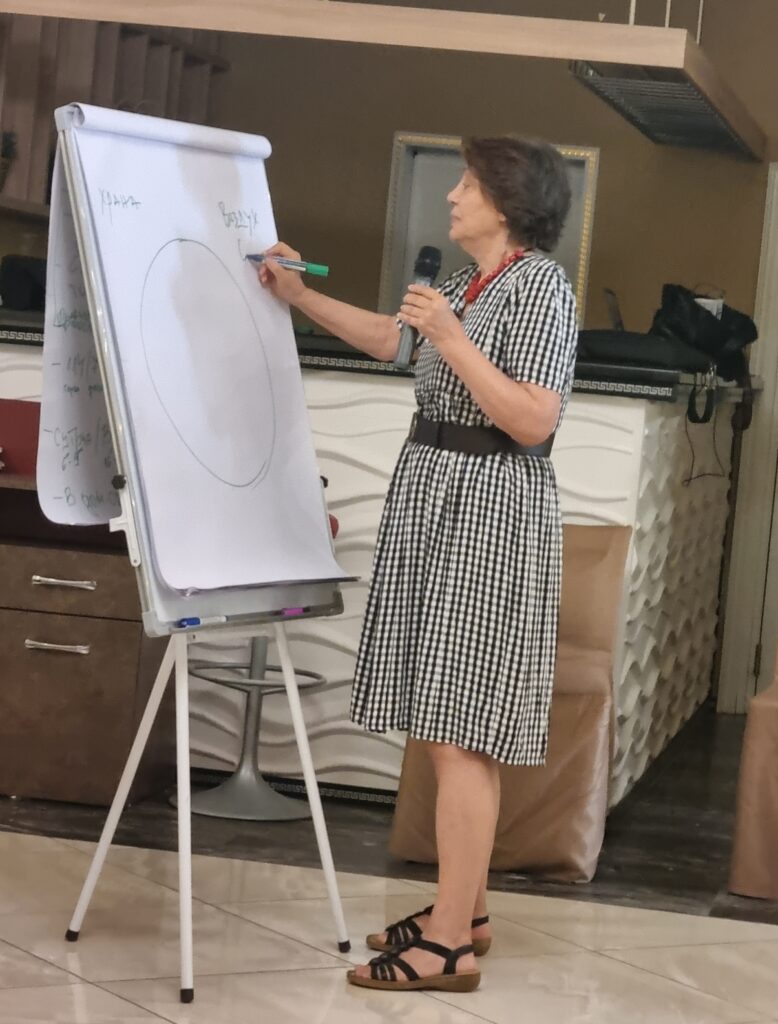
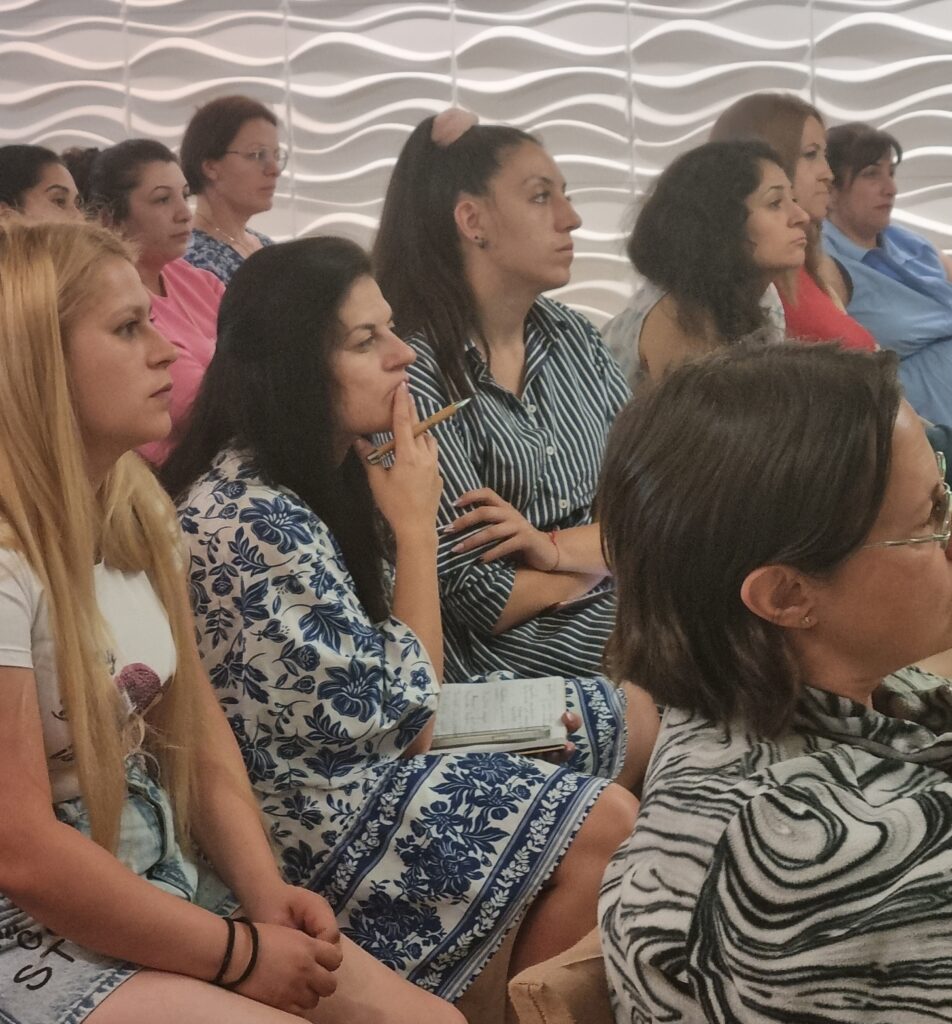
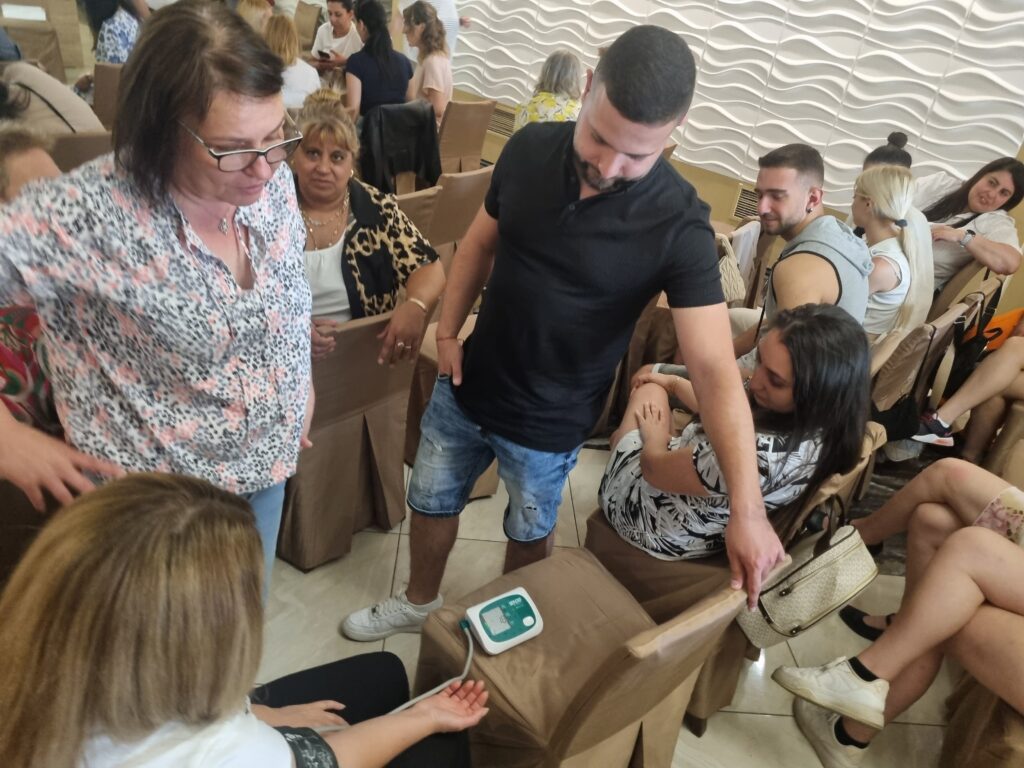
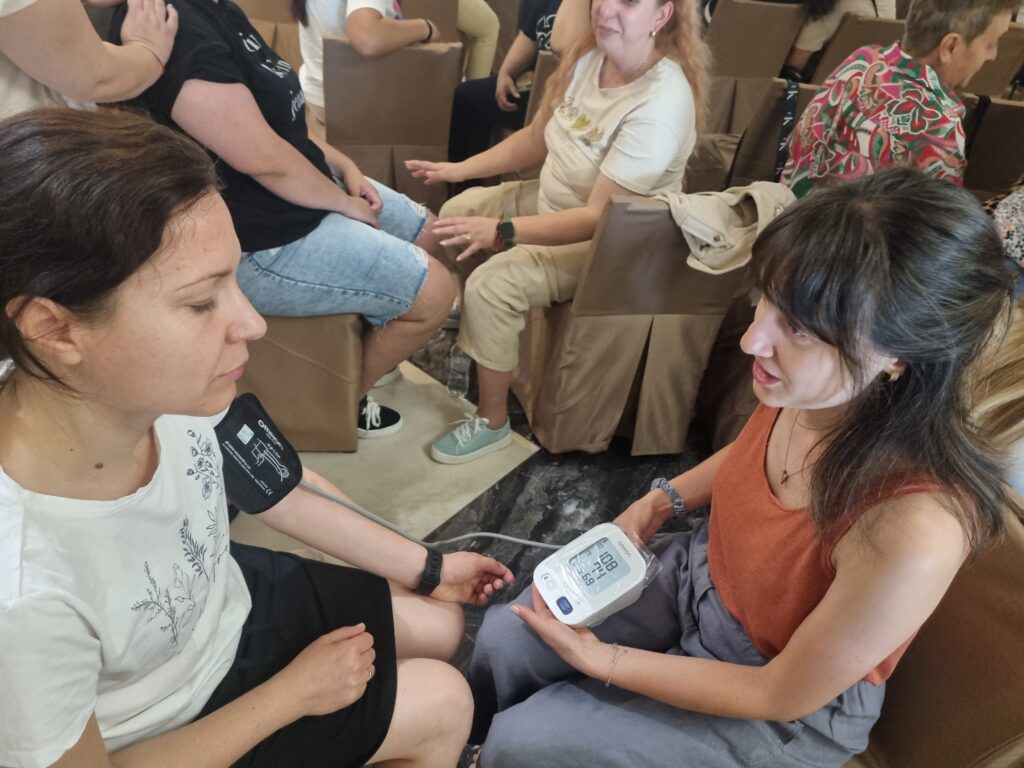
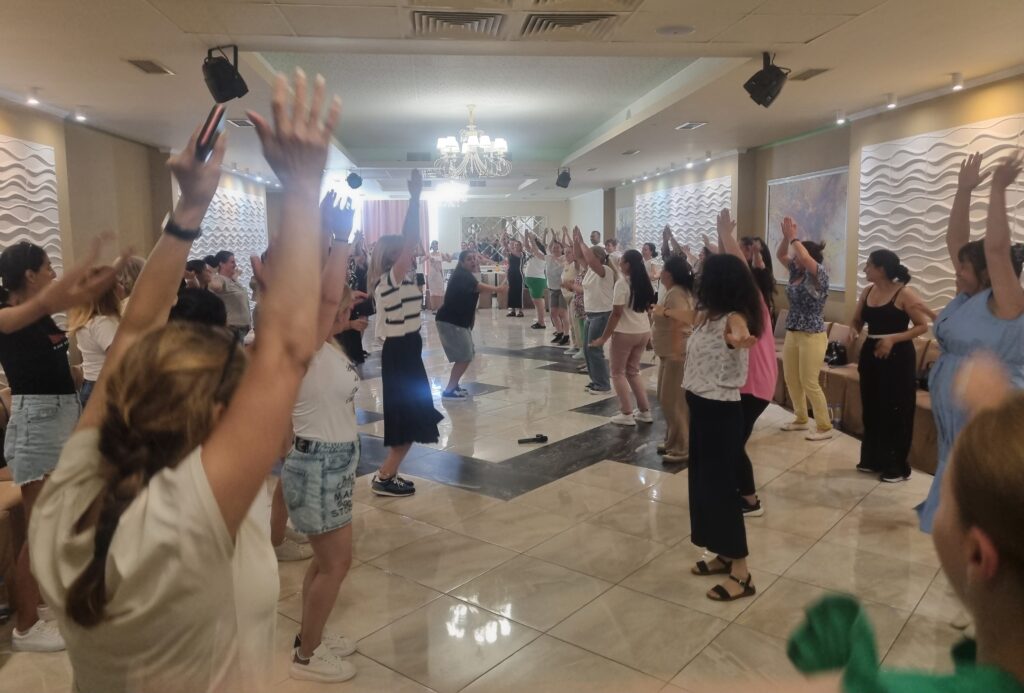
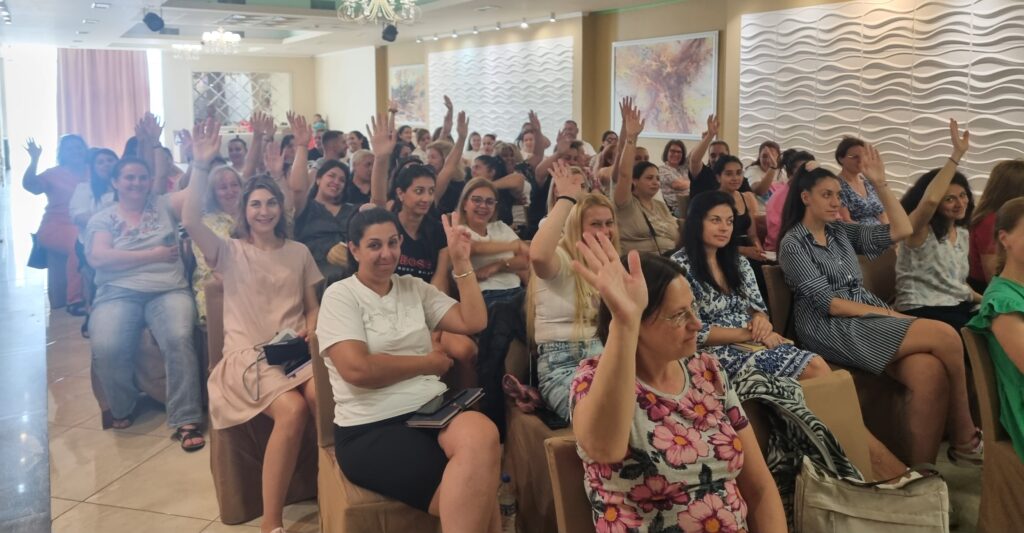
ShowUp4Health – WP4: Where Are We Now?
The ShowUp4Health project’s WP4 – Co-Piloting work package has entered a new and exciting phase: after months of careful planning, the pilot activities have moved into the implementation stage at the selected sites.
The project has been introduced to relevant local stakeholders, including municipalities, social service providers, and healthcare institutions. WP4 aims to strengthen collaboration between social and healthcare actors and to test how non-communicable disease (NCD) prevention and screening can be made more effective at the local level – particularly in underserved communities.
Following the previously developed work plans and methodologies, the training of health mediators and outreach workers is now underway. These training sessions use the methodology and materials developed under task T3.2 of the project and are designed to equip local community actors with the skills needed to identify NCD risk factors and support access to screening and care.
At the same time, a broad consultation process was carried out: online and in-person meetings were held to ensure that pilot actions are adapted to the real needs of local communities. Partners actively participated in this co-design phase, and now concrete steps of implementation are beginning.
What can we expect in the coming period?
* Launch of NCD screenings and awareness raising campaigns * Use of digital tools to support screening and monitoring * Sharing of results and lessons learned * Improved stakeholder collaboration * Scaling up the model and developing sustainability plans
Working Together for Community Health – Stakeholder Meeting within the ShowUp4Health Project
The ShowUp4Health project has reached an important milestone: as part of WP4 – Co-Piloting, the first stakeholder meeting was successfully organized, bringing together key local actors to explore how non-communicable disease (NCD) prevention and screening can be made more effective through local cooperation.
The event welcomed representatives of local municipalities, public institutions, healthcare providers, NGOs, and Roma community leaders. The goal was to present the project’s aims and jointly identify the needs, challenges, and opportunities that could shape the local implementation of pilot activities.
What was discussed?
– Introduction to the ShowUp4Health project and WP4 objectives
– Analysis of local social and healthcare system characteristics
– Health needs of the target groups, particularly Roma communities
– Opportunities for cooperation in screening, prevention, and education
– Presentation of the methodologies and training tools developed by the project
Feedback from participants confirmed the strong demand for cross-sector collaboration, and emphasized that involving local communities is essential for the success of NCD prevention strategies. Several concrete ideas were shared during the session, including mobile screening units, school-based awareness programs, and culturally tailored health campaigns.
What’s next?
The outcomes of the stakeholder meeting were directly integrated into the final pilot implementation plans. Partnerships have been strengthened, and the next phase focuses on action: launching trainings, community engagement events, health screenings, and education campaigns. This event clearly demonstrated that meaningful change can only be achieved through local-level cooperation – and that is precisely what ShowUp4Health is all about.
HCSOM pilots launched with anniversary training
In two years, 12,425 patients were treated by 38 doctors in difficult circumstances, most of whom had been without a GP for years in small villages, thanks to the Attila Naszlady Health Development Programme launched by the Hungarian Maltese Charity Service with EU support. During telemedicine consultations, which have been available since March 2023, a medical assistant in a mobile clinic equipped with state-of-the-art diagnostic equipment assists with the examination of patients, which is carried out by a doctor from a distance of up to several hundred kilometres. On 6 March 2023, telemedicine consultations were launched at five locations in the Catching Up Settlements Programme, representing a unique innovation in healthcare and bringing significant international recognition to Hungary.
This was the second anniversary of the telemedicine programme, and to mark the occasion, we launched our pilot activities with a high-quality professional training course as part of the S4H project: On 6 March, to mark the second anniversary of the Maltese Charity Service’s telemedicine-based health programme in catch-up settlements, we held an accredited training course in Bicskén as part of the Hungarian medical training system.
More than 60 doctors participated in the comprehensive one-day training course, and we are already working on its continuation due to the many positive responses we received.
HCSOM Pilots Expand with Telemedicine Measurement
Starting in May, the HCSOM pilots of the S4H project have entered a new phase with the inclusion of telemedicine appointment measurements. The pilot actions are built on three pillars: education, testing of innovative care models, and patient follow-up. As part of this expansion, we have begun collecting data and testing tools for non-communicable disease (NCD) screening and care in participating municipalities.
This was the second anniversary of the telemedicine programme, and to mark the occasion, we launched our pilot activities with a high-quality professional training course as part of the S4H project: On 6 March, to mark the second anniversary of the Maltese Charity Service’s telemedicine-based health programme in catch-up settlements, we held an accredited training course in Bicskén as part of the Hungarian medical training system.
More than 60 doctors participated in the comprehensive one-day training course, and we are already working on its continuation due to the many positive responses we received.
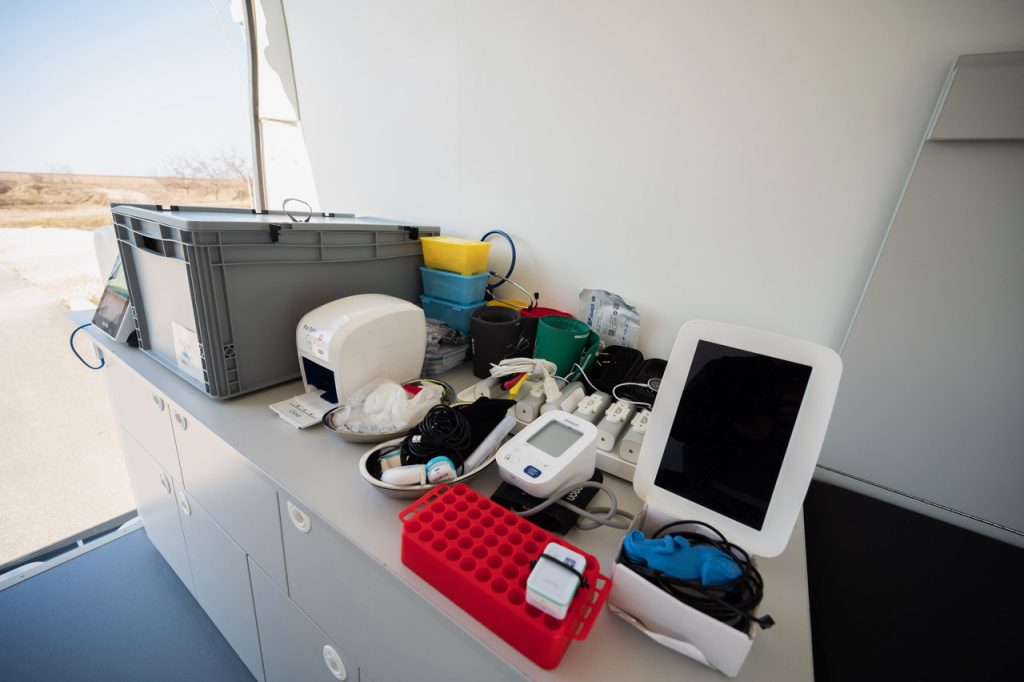
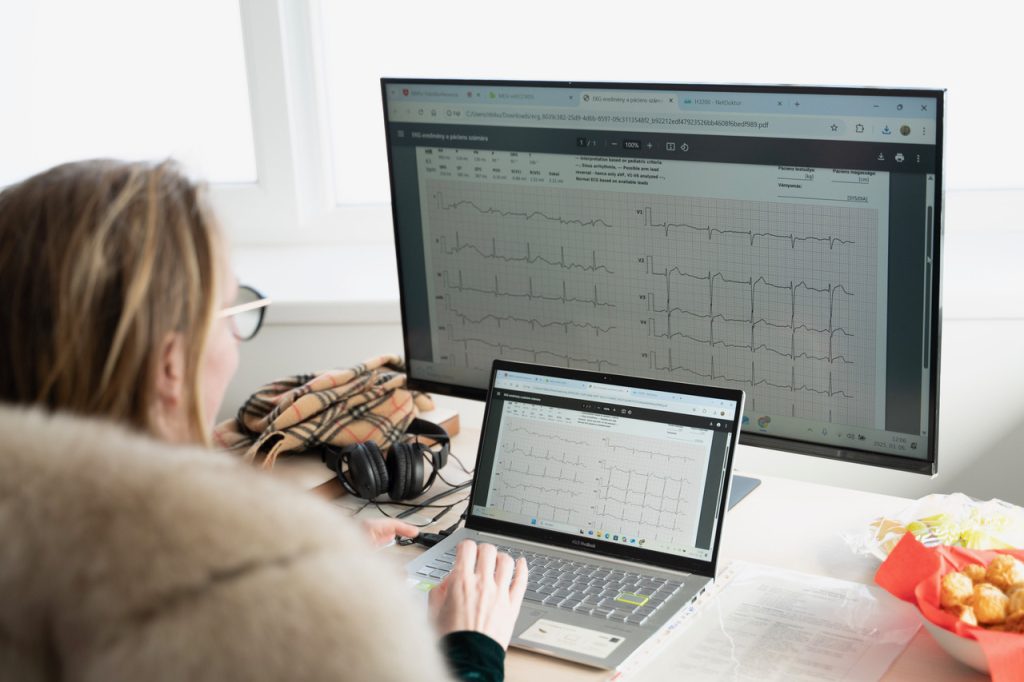
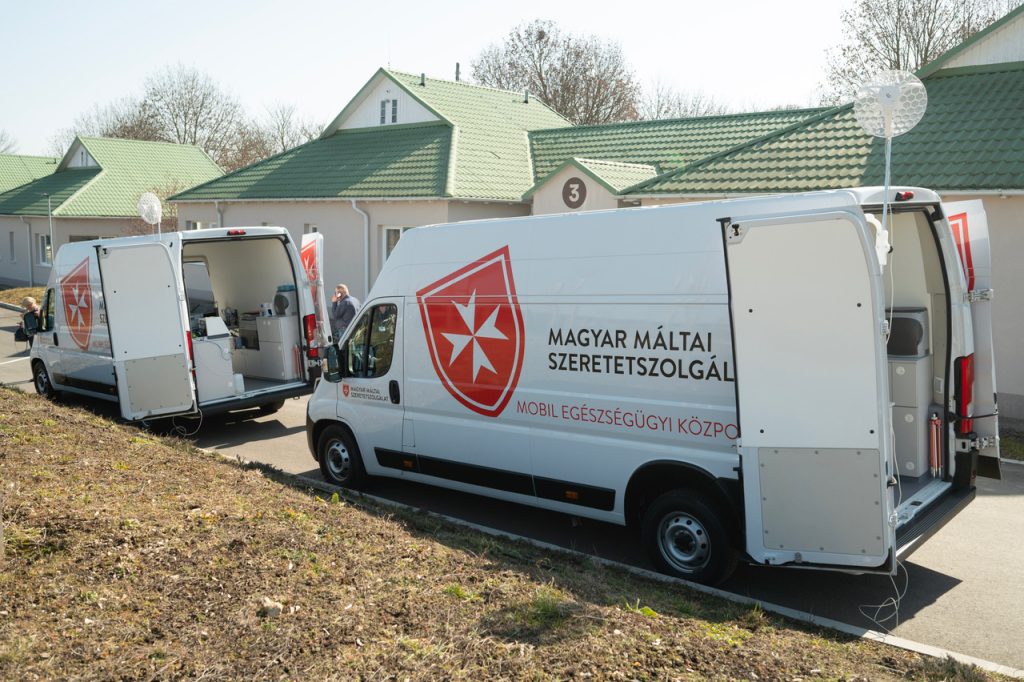
Supporting Healthcare for IDPs in Uzhgorod (Ukraine) “InterFamily”’s Ongoing Pilot Project on NCD Screening As Part of the SHOWUP4Health Project
The Family Medicine Clinic „InterFamily” is successfully running a special pilot project within the framwork of the SHOWUp4Health Project in Uzhgorod, aimed at supporting the health of internally displaced people (IDPs). The initiative focuses on early screening for non-communicable diseases (NCDs), such as cardiovascular conditions, diabetes, and mental health disorders.
A Three-Part Approach to Better Health
This project is built on three main pillars. Firstly, InterFamily delivers targeted training sessions (2-3 hours) for doctors, nurses, and clinic staff. T hese sessions aim to equip healthcare professionals with the skills to:
- Educate patients and plan NCD screenings
- Manage patients diagnosed with chronic conditions
- Provide rehabilitation support after major health events, such as strokes or heart attacks
Tacking Hidden Mental Health Challenges
The InterFamily team has observed that many IDPs tend to report physical symptoms that may mask underlying mental health issues, such as anxiety or depression. In response:
- Specialised screening tools and communication techniques have been integrated into training
- A support network enables doctors to consult mentors and mental health specialists
- Patients have access to free psychological support from family doctors, psychologists, and psychiatrists, funded through a dedicated grant
Leveraging Digital Tools to Enhance Care
A key innovation in the project is the use of a web-based tool:
- CheckMe – A digital health advisor that assists healthcare professionals in planning screenings for hidden diseases and provides personalised health recommendations. This tool is particularly valuable when working with IDPs.
Backed by the SHOWUP4Health Grant
The SHOWUP4Health grant supports a multidisciplinary team of seven healthcare professionals, including:
- Family medicine experts Team
- A cardiologist
- An endocrinologist
- A psychiatrist
- A team of psychologists
- Family nurses
- A mobile unit providing care for elderly residents in nursing homes
Community Engagement and Continuous Evaluation
The project is implemented in partnership with local NGOs, camp leaders, and community stakeholders to ensure accessible and coordinated service provision. To monitor and improve its effectiveness, the team:
- Tracks the number of screenings conducted before and after training
- Collects feedback from healthcare personnel
- Assesses how effectively new skills are applied
- Reviews progress regularly to identify areas for improvement
Through the integration of training, digital innovation, specialist support, and strong community partnerships, “InterFamily” aims to strengthen healthcare services for displaced populations, enhance effectiveness and sustainability, and ensure long-term impact.
The project was presented internationally at the 100th EGPRN Conference of Family Physicians in Gothenburg, Sweden.
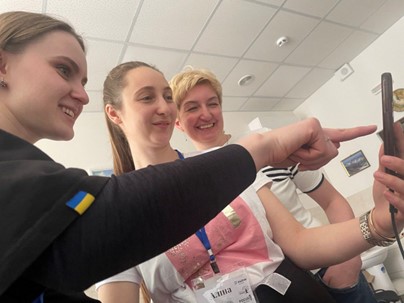
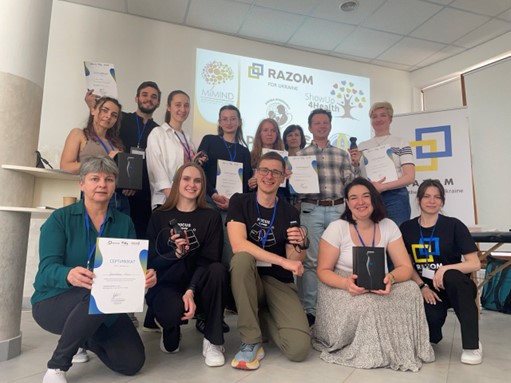
Training of ”InterFamily” Staff on Web based Screening Advisor Program CheckMe
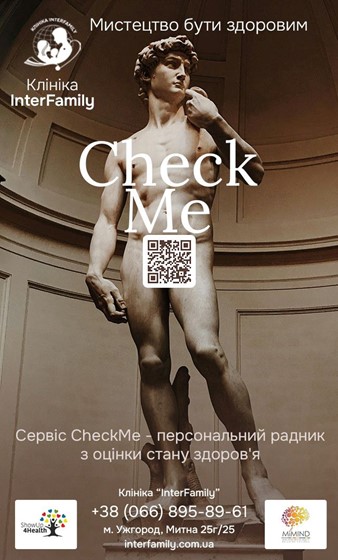
The Poster for outdoor activities of “InterFamily”
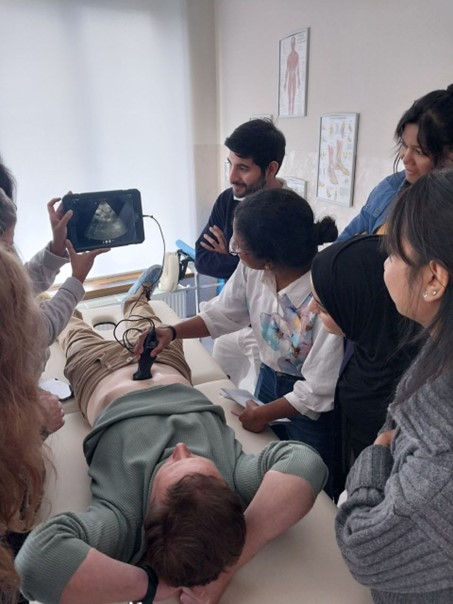
POCUS (Point of care Ultrasound) training conducted for the family medicine doctors’ team of “InterFamily” clinic and now implemented into undergraduate medical training.
Web based Screening Advisor Program CheckMe – A digital health advisor that helps doctors to plan screening of hidden diseases and gives personalized health recommendations.
An open-air event was also organised in Uzhhorod to promote and carry out screenings for local citizens.
Care in the Open Air: Health Awareness Event Held in Uzhhorod As Part of the SHOWUP4Health Project
On 29 April 2025, in the very heart of Uzhhorod — Teatralna Square — a warm and truly meaningful open-air event took place, dedicated to one of life’s greatest treasures: our health.
The event was organised by the medical team of the InterFamily Clinic, in collaboration with faculty members, interns, and students from the Department of Family Medicine and Outpatient Care at the Faculty of Medicine No. 2, Uzhhorod National University (UzhNU). The aim was to raise awareness of preventive healthcare and to encourage responsible attitudes towards personal well-being.
As part of the event, the team introduced CheckMe — an innovative digital tool designed to help individuals create a personalised, evidence-based preventive care plan. Based on a person’s age, gender, lifestyle, and medical history, CheckMe generates tailored recommendations for screenings, vaccinations, and other preventive measures aligned with global clinical guidelines.
Throughout the day, residents of Uzhhorod had the opportunity to:
- receive free consultations from healthcare professionals
- undergo basic health screenings (blood pressure, blood glucose levels, body mass index)
- learn about their personal risk factors
- receive guidance on healthy lifestyle practices
- explore educational materials on vaccination, cardiovascular disease prevention, diabetes, and cancer screening
Special attention was given to different age groups — including young adults, middle-aged individuals, and older people — with a particular focus on vulnerable internally displaced persons (IDPs). The organisers emphasised that prevention is not merely about early diagnosis; it is a proactive step towards a longer, healthier life.
CheckMe is about care. About awareness. And about science working for people.
We extend our sincere thanks to everyone who took part — the doctors, interns, students, and, most importantly, the residents of Uzhhorod who stopped by, asked questions, listened, and took a step towards better health. Together, we are helping to build a culture of health-conscious living.
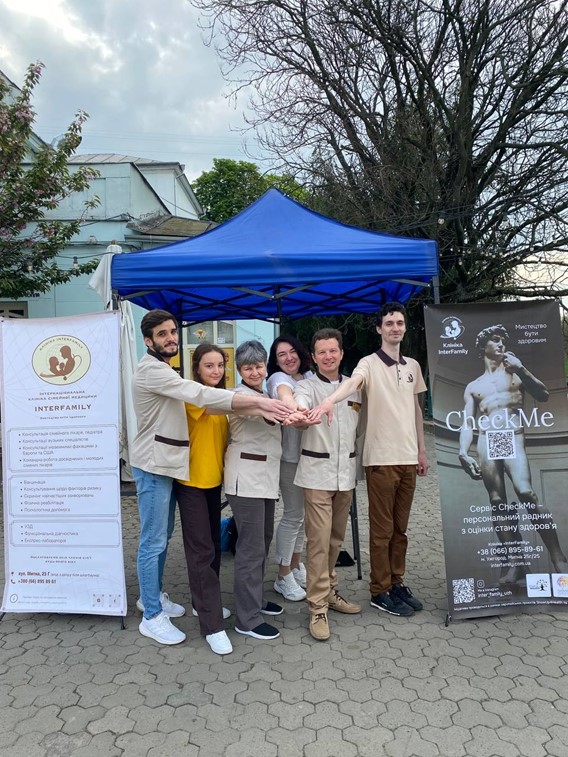
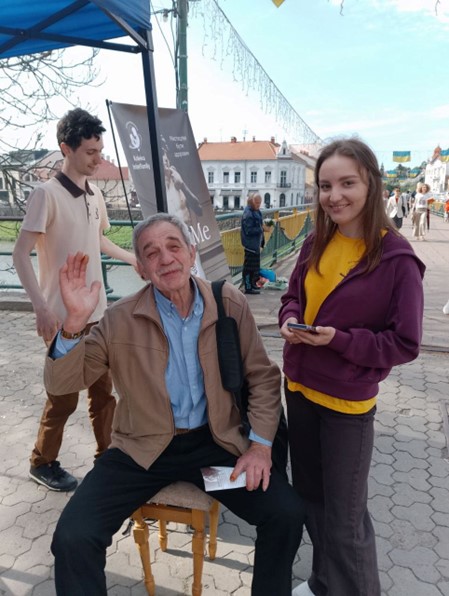
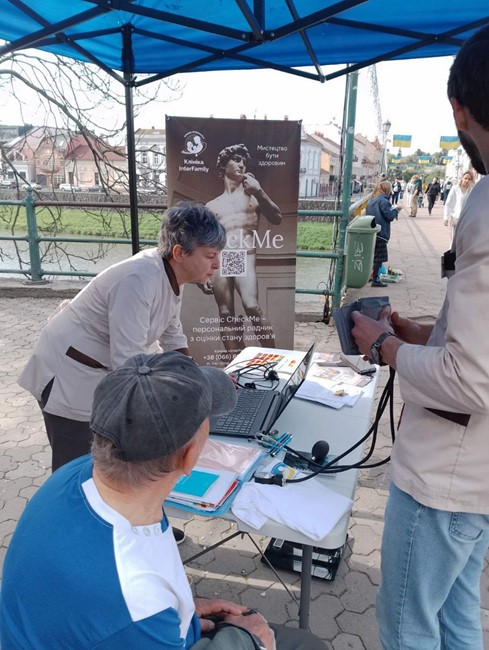
In May 2025 HESED revives the health promotion and brings it back as main focus for team and activities
In the previous months, HESED team was very busy. We had intensive internal discussions on the pilot details; we had to design and elaborate the primary documentation and procedures for prevention and screening; we had meetings with crucial stakeholders to establish the local pathways for treatment and follow-up of NCD.
With the start of the spring, we give start to the health project and activities!
Now the health outreach workers are recruited and selected; their training has started and will continue with learning by doing; and their outreach work is scheduled and put into routine.
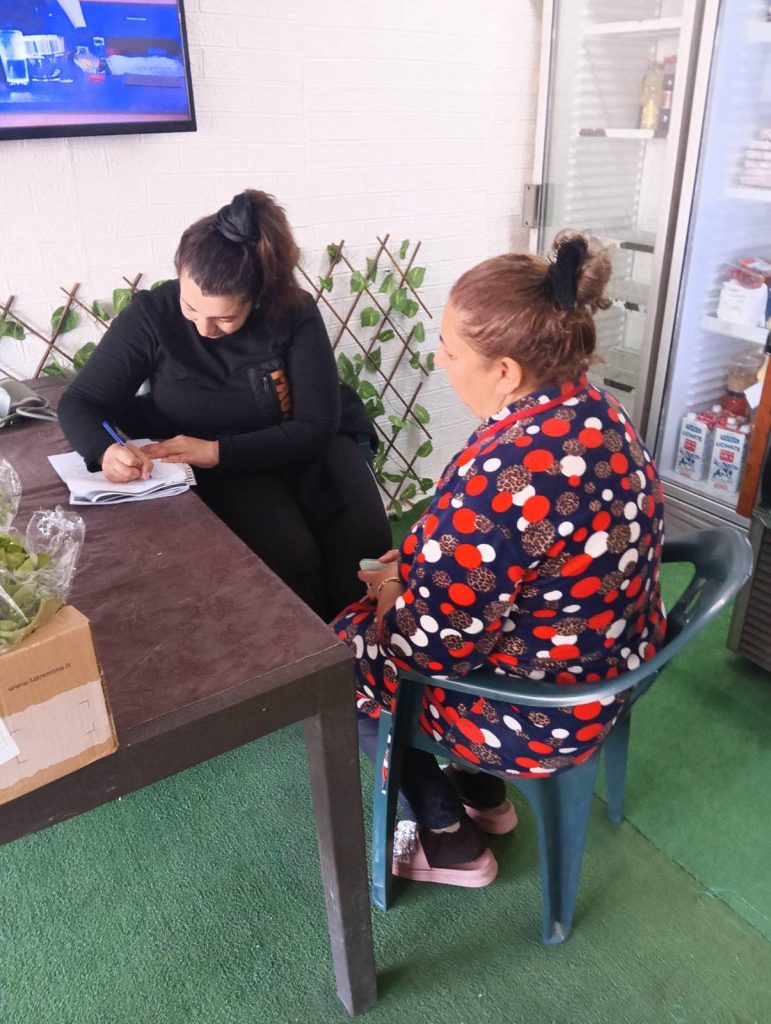
When meeting people, the outreach workers fill in a special screening questionnaire and measure the waist and the blood pressure of the person. Then the results are calculated and the person is consulted about the possible risks and the next steps he/she should take. The outreach workers pay special attention to the health insurance status of their clients and motivate them to visit their GP more regularly, if they have one. If the person is uninsured and does not have a GP, s/he is referred to other medical services offered by HESED in the neighborhood free of charge.
For a period of less than month when the health outreach activities are available in the Roma community, more than 70 people participated in the screening and many of them received additional support, consultations and medical attention.
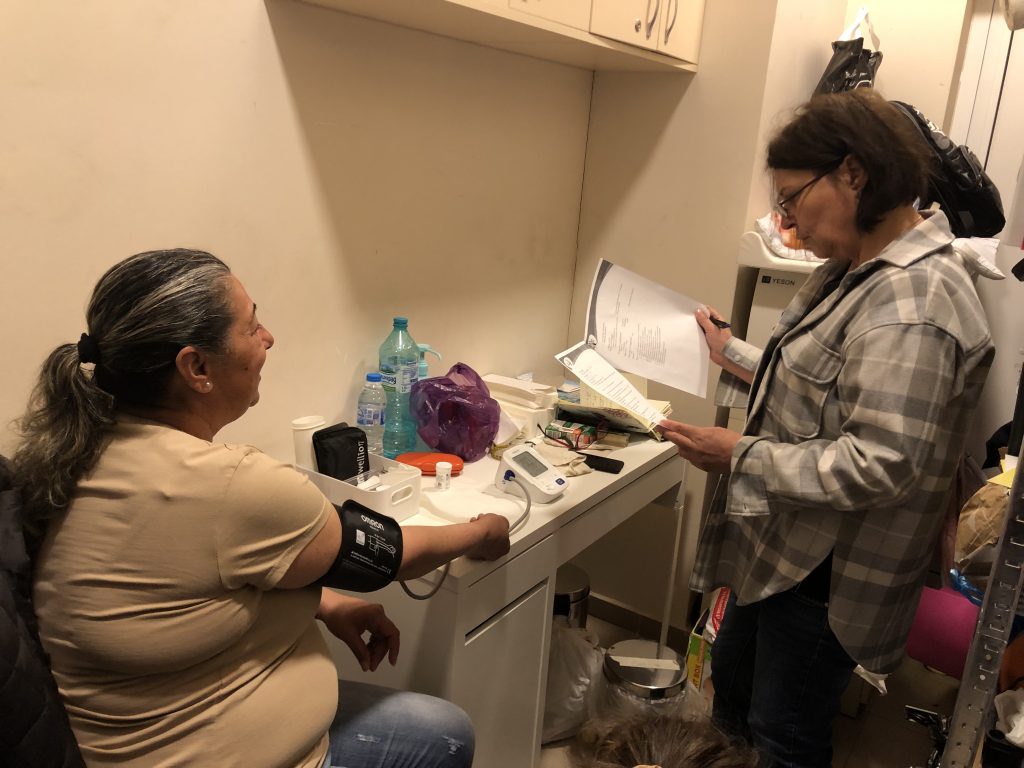
HESED marked the World Hypertension Day
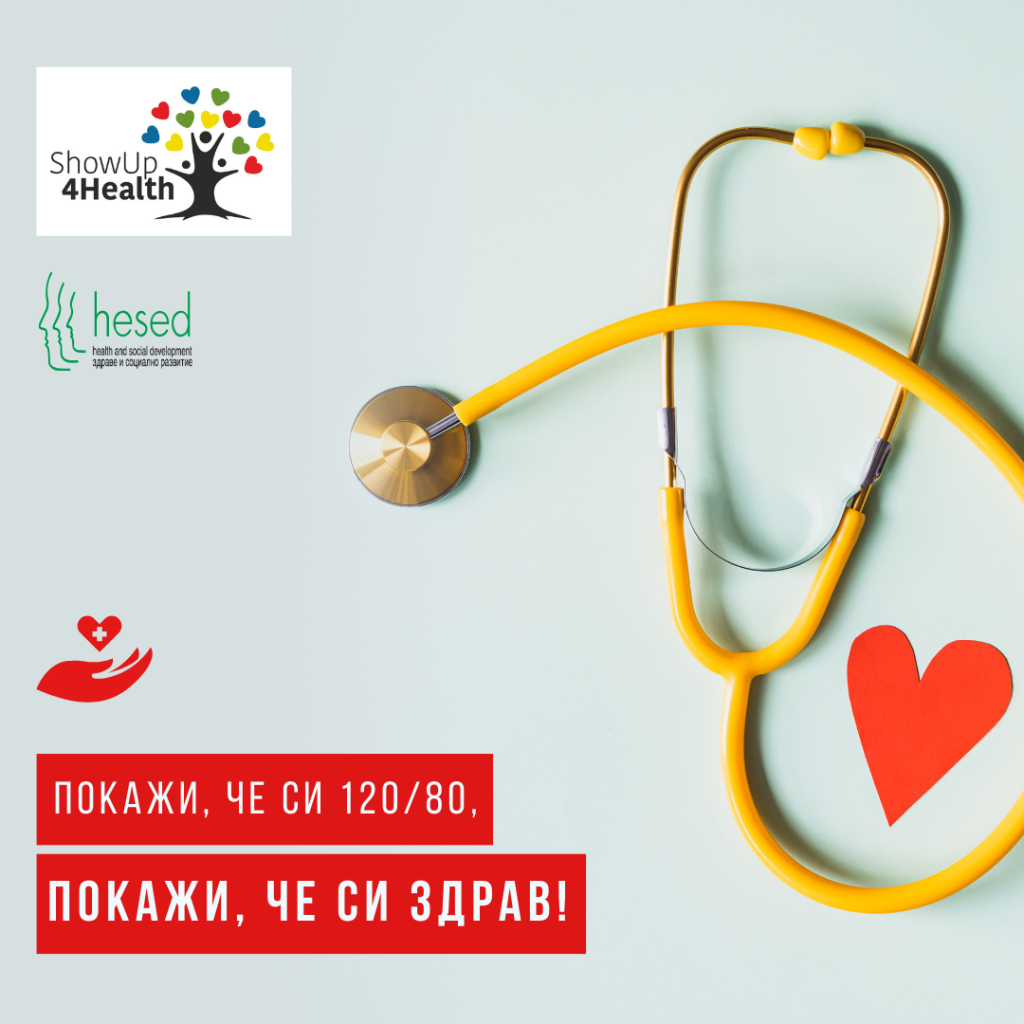
To promote the World Hypertension Day, HESED team decided to support Roma people to join the massive campaign of Sofia Municipality for preventive cardiological check-ups free of charge. The Roma community was informed about this possibility through special post in social media channels.
In the period between 17 and 31 May 2025 the team of HESED works actively to make appointments for Roma people in need of cardiological consultation. The examinations are free but available by appointment only at a selected medical facility. Cardiologists perform a clinical examination, as well as an electrocardiogram (ECG) and echocardiography (EchoCG), if indicated.
As the medical centres are located out of the Roma neighborhoods, it is usually very difficult for many Roma people to make the appointment by themselves and then to reach the place. And here come to help the HESED outreach workers who can accompany those people most in need.
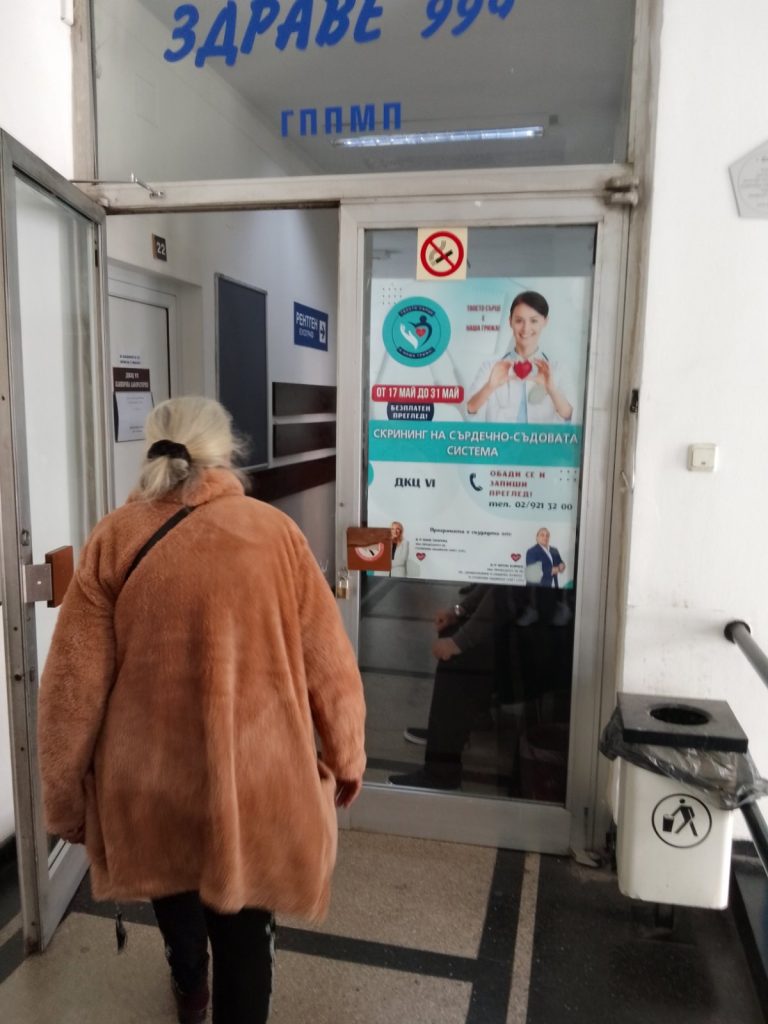
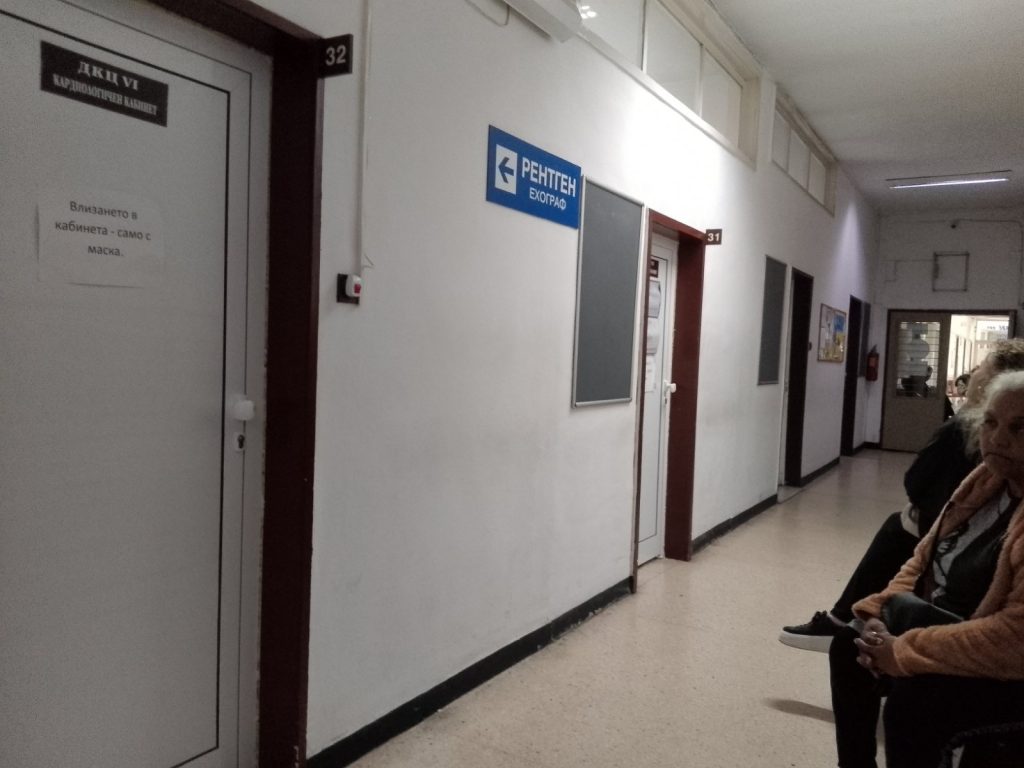
Many Roma people have never undertaken any prophylaxis or screening. Big part of them have high blood pressure but they do not know about it or have no resources to control their condition by themselves and need support.
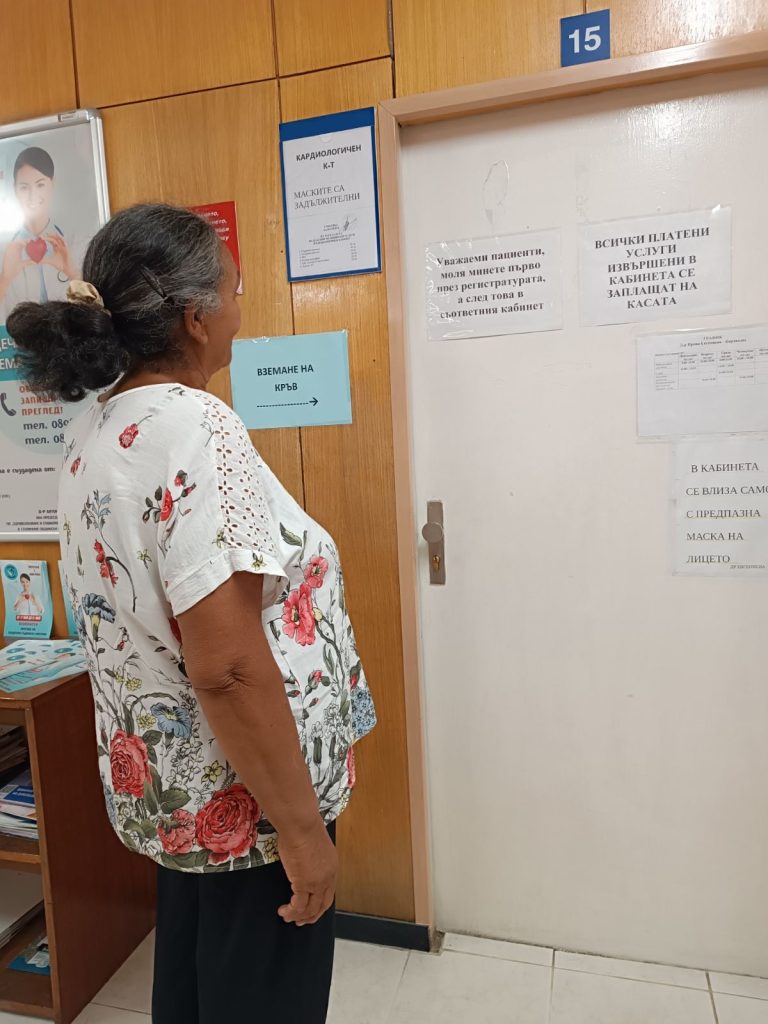
For just one week HESED team made more than 45 appointments for cardiological examinations. Many people were accompanied by HESED outreach and social workers. The needs are big and the numbers are increasing.
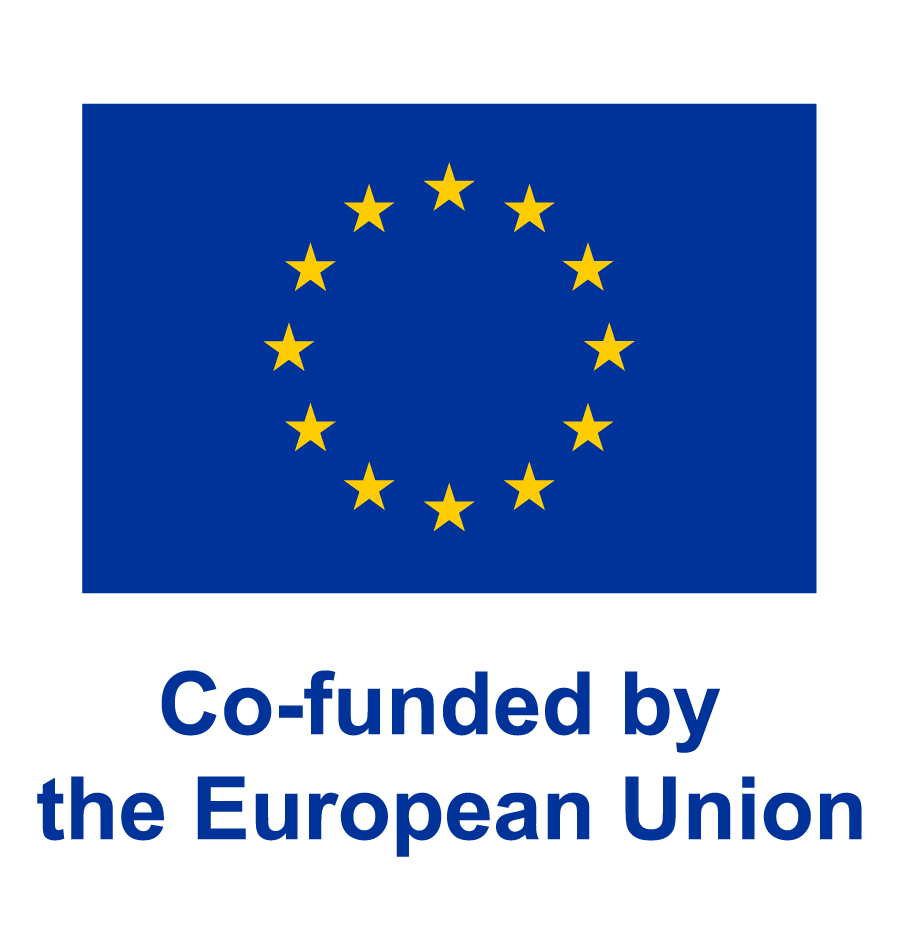
The content of this website represents the views of the author only and is his/her sole responsibility; it cannot be considered to reflect the views of the European Commission and/or the European Health and Digital Executive Agency (HaDEA) or any other body of the European Union. The European Commission and the Agency do not accept any responsibility for use that may be made of the information it contains.
